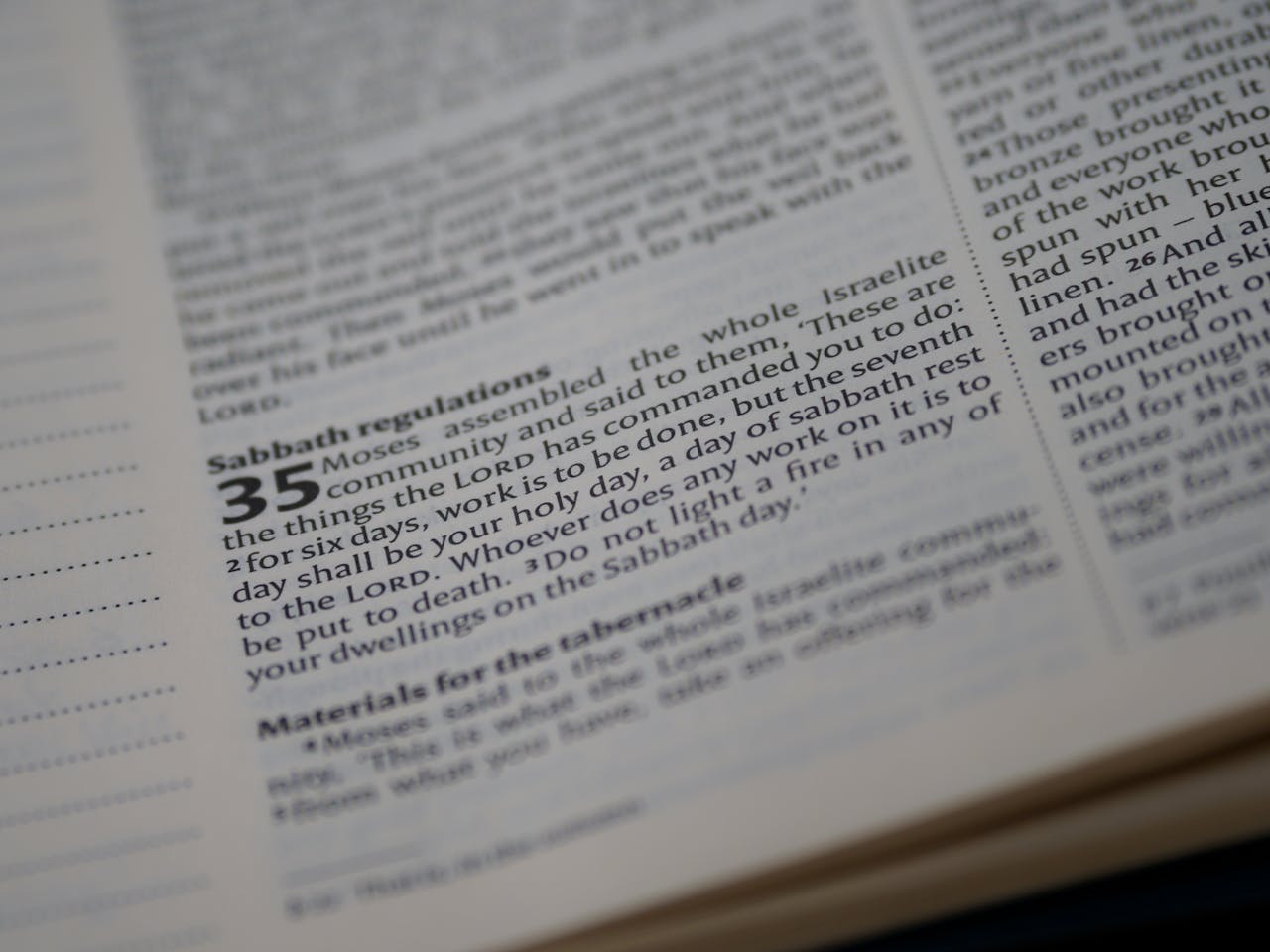The observance of the Sabbath is often associated with the Israelites and the Mosaic law. However, a careful reading of the book of Genesis reveals that God’s commandments, including the Sabbath, were known and observed long before the nation of Israel was established. In this post, we will explore examples of how the patriarchs of faith—Abraham, Isaac, Jacob, and others—kept God’s commandments, including the Sabbath, demonstrating that God’s law is timeless and universal.
Genesis 26:5: Abraham’s Obedience to God’s Commandments
One of the clearest statements about the patriarchs and the keeping of God’s commandments comes from Genesis 26:5, where God speaks to Isaac, reaffirming the covenant He made with Abraham. The verse states:
“Because that Abraham obeyed my voice, and kept my charge, my commandments, my statutes, and my laws.” (Genesis 26:5, KJV)
This verse is significant because it reveals that even in the time of Abraham, long before Moses received the written law on Mount Sinai, there were divine commandments, statutes, and laws in place. Abraham’s obedience to these laws demonstrates that God’s moral standards, including the Sabbath, were understood and followed by those who were in covenant with Him.
Evidence of Commandments Before Sinai
1. The Commandment Against Murder (Genesis 4:8-10)
In the early chapters of Genesis, we see Cain’s murder of Abel. God confronts Cain in Genesis 4:10, saying, “Your brother’s blood cries out to me from the ground!” This indicates that the act of murder was already known to be a grievous sin. Even though the commandment “Thou shalt not kill” (Exodus 20:13) would later be written on stone tablets, it was clearly a violation of God’s law from the beginning.
- The Commandment Against Adultery (Genesis 39:7-9)
The story of Joseph and Potiphar’s wife in Genesis 39 shows that adultery was recognized as sin long before the Ten Commandments were written. Joseph explicitly refused Potiphar’s wife’s advances, saying, “How then could I do such a wicked thing and sin against God?” (Genesis 39:9, NIV). This statement reveals that Joseph understood adultery to be a sin against God’s moral law.
- The Commandment to Honor Marriage (Genesis 2:24; 20:3)
In Genesis 2:24, marriage is instituted by God as a sacred bond between one man and one woman. Later, in Genesis 20, Abraham’s interaction with Abimelech highlights the sanctity of marriage. When Abimelech takes Sarah, believing she is Abraham’s sister, God warns him in a dream not to touch her, revealing His protection of marriage. This reflects the same moral principles found in the seventh commandment, “Thou shalt not commit adultery.”
Sabbath Observance Before Sinai
Although the Bible does not explicitly state that the patriarchs observed the Sabbath in the same way it describes in Exodus, there is strong evidence to suggest that they followed God’s Sabbath rest, even before Israel was given the commandment in Exodus 20.
- God’s Rest at Creation (Genesis 2:1-3)
The foundation of the Sabbath is found in the creation account, where God rested on the seventh day, blessed it, and sanctified it. This Sabbath rest was instituted long before sin entered the world and before the establishment of the Israelite nation. It was a universal day of rest set apart for all humanity.
Since Genesis shows the patriarchs in close covenantal relationship with God, it’s reasonable to infer that they followed the patterns set by God at creation, including the Sabbath. Abraham, Isaac, and Jacob were familiar with God’s commands, and as Genesis 26:5 indicates, Abraham kept God’s commandments, which would include the Sabbath established in Genesis 2.
- The Principle of Work and Rest
The Sabbath commandment to rest after six days of labor follows the pattern of God’s creation week. The patriarchs, being shepherds, farmers, and laborers, followed natural work cycles that reflected God’s rhythm of work and rest. Though there is no direct mention of them observing the seventh day as a Sabbath, their lives were lived in alignment with God’s creation order.
- God’s Holiness and Sabbath Rest
Abraham, called the friend of God (James 2:23), lived in a special relationship with the Creator. His obedience to God’s voice, commandments, and statutes in Genesis 26:5 shows that Abraham adhered to God’s moral and spiritual laws, which likely included keeping the Sabbath, a day sanctified by God. As Abraham’s descendants, Isaac, and Jacob also lived by these divine principles.
What About the Other Commandments?
The patriarchs were not only mindful of the Sabbath but also kept other commandments that would later be codified at Sinai:
– Do not steal: When Jacob worked for Laban, he went out of his way to ensure honesty and fairness in his dealings, even though Laban often mistreated him (Genesis 30-31).
– Do not covet: The peaceful resolution between Abraham and Lot over land disputes in Genesis 13 is a prime example of avoiding covetousness and seeking peace.
– Honor your father and mother: The respectful relationship between Isaac and Abraham in Genesis 22, where Isaac submits to his father’s instructions, shows the deep respect for parental authority.
Conclusion: The Commandments, Including the Sabbath, Pre-Date Israel
The book of Genesis clearly shows that the patriarchs—Abraham, Isaac, and Jacob—lived in accordance with God’s commandments long before they were written on stone tablets at Mount Sinai. Genesis 26:5 tells us that Abraham kept God’s commandments, statutes, and laws, which implies that moral principles, including the Sabbath, were known and observed in the pre-Israelite era.
The Sabbath, established at creation, is a universal institution for all humanity, not just for Israel. It is a timeless command that reflects God’s character, calling His people to rest, worship, and fellowship with Him. Just as Abraham walked in obedience to God’s law, so too are we invited to observe the Sabbath and live in alignment with God’s divine rhythm of rest and holiness.


